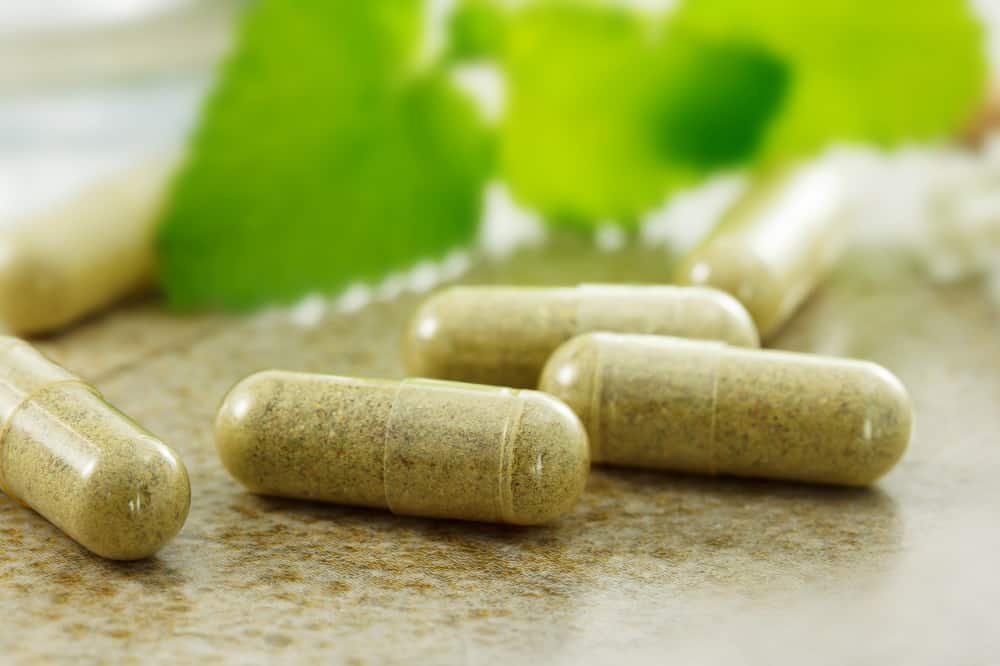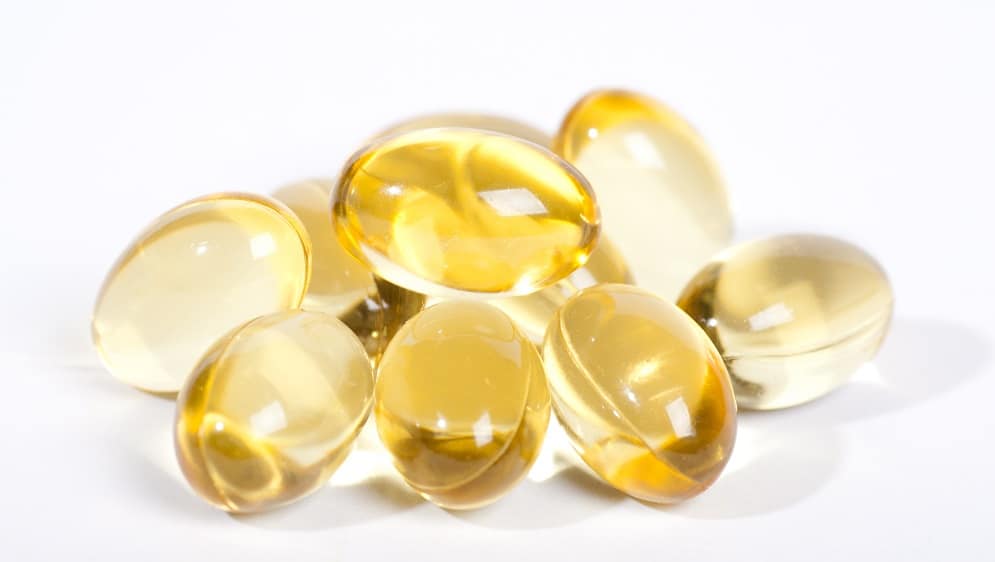Modalities of weight loss have become more important; Despite the effectiveness of exercise and proper diet, weight loss can also be aided by the use of weight loss supplements - substances that can promote certain physiological conditions that ultimately aid in weight loss. Modes of mechanism of these substances vary from increasing metabolic rates to promoting fat oxidation.
Fortunately, vegan weight loss supplements can be found in abundance. Fat burners such as forskolin, 5-HTP, L-theanine, L-tyrosine, and caffeine are all sourced from herbs and plants which make them vegan. While these active ingredients are vegan, there are additional ingredients that are used in the preparation of these supplements that are non-vegan (e.g., gelatin, magnesium stearate, caprylic acid, etc.)
Table of Contents
What are Weight Loss Supplements?

Conventional methods of weight loss have been estimated to have a success rate of around 15% (1). At these rates, weight loss could benefit from the use of a weight loss supplement.
Weight loss supplements are products that contain active ingredients which manipulate the body’s natural processes and promote weight loss. For weight loss, these products often act in one of three ways: they either help the body burn more calories, prevent fat absorption, or suppress an individual’s appetite.
Weight loss supplements that help the body burn more calories often target the body’s metabolism. Generally speaking, metabolism is the total set of processes that the body performs to sustain life - such as the conversion of calories from food into energy. Weight loss supplements that target metabolism typically help the body burn more calories by increasing metabolic rates and function.
Substances can also promote weight loss by preventing the natural processes of fat absorption. Aside from carbohydrate stores of the body located in the liver and skeletal muscles, the body also stores energy in the form of fat in the adipose tissue. Weight loss supplements can help the body lose weight by preventing this conversion and promoting the excretion of extra fat through bowel movement.
Weight loss supplements that act by reducing an individual’s appetite often target hormones - particularly hormones that signal hunger and satiety (the feeling of being full or satisfactorily fed). Studies have found a wide array of compounds that can affect the production of these hormones in a manner that can help promote weight loss.
Vegan Weight Loss Supplements: Common Ingredients
There are hundreds, if not thousands, of weight loss supplements. Fortunately, most of these supplements make use of active ingredients that are herbal in nature. The issue isn't the active ingredients, it's the inactive ingredients.
Here are some examples of active ingredients in weight loss supplements that are entirely vegan.
Note: The ingredients list below is not exhaustive. Researching common ingredients of "fat burners" had the below as the most popular.
We also attempt to be all encompassing in terms of the various interpretations of veganism. Many vegans avoid animal products and by-products. However, ethical vegans also avoid ingredients/products that are linked with both animal cruelty and/or the exploitation of human labor.
The issue with the latter is many supplement manufacturers fail to outline how their ingredients are synthetized and/or refined as well as sourced.
Forskolin
Forskolin, extracted from the roots of Coleus forskohlii, is a diterpenoid with a long history rooted in Ayurvedic medicine - the traditional medicine system of the Indian subcontinent (2).
As a traditional medicine, the plant has been used to treat a wide array of malidies. The leaves have been reported to be used as an expectorant, emmenagogue, and diuretic in Egypt and Africa. Comparatively, it is used for stomach aid and intestinal disorders in Brazil.
In the Ayurveda alone, the plant has been found to be used to treat heart diseases, abdominal colic, respiratory disorders, insomnia, convulsions, asthma, bronchitis, intestinal disorders, burning sensation, constipation, epilepsy, and angina.
Numerous studies have been conducted on the effects of forskolin on weight loss (3). These studies have observed that doses as low as 25 milligrams of forskolin supplements can significantly reduce body weight and fat content in 8 weeks without any adverse health risks, particularly to blood pressure and heart rate. Furthermore, forskolin was also able to affect high density triglycerides (HDL; “bad cholesterol”).
5-HTP
A by-product of tryptophan, 5-HTP (L-5-hydroxytryptophan; oxitriptan) is also a naturally occurring amino acid that serves as a precursor to the neurotransmitter serotonin. This compound is vegan as it is commercially sourced from an African woody shrub called Griffonia simplicifolia.
Serotonin is a neurotransmitter that plays several roles in the brain such as modulating mood, cognition, reward, learning, and memory. However, serotonin has also been associated with hunger and food. Studies have shown that serotonin is able to block other neurons known as NPY/AgRP from being able to inhibit melanocortin-4 receptors (MC4Rs) (4).
Since these receptors are involved with regulating food intake, blocking their inhibition can help reduce an individual’s appetite.
A 1992 study published in the American Journal of Clinical Nutrition investigated the effects of oral doses of 5-HTP on obese participants. After two test periods, one with dietary restrictions and one without, the study found that treatment of 900 milligrams was able to significantly induce weight loss through reduced caloric intake and consistently early satiety (5).
L-Theanine
L-theanine is a vegan substance that is derived from the tea plant (Camellia sinensis). Even though tea has caffeine which is often associated with hyperactivity and energy, L-theanine is responsible for the calming effect that tea provides.
Read More: Is Green Tea Considered Vegan?
L-theanine is currently being studied for its potential medicinal benefits such as prevention of certain cancers and cardiovascular disease and enhanced performance of the immune system (6).
L-theanine has been studied to help promote weight loss, but not enough studies have investigated the mechanism behind it. Since L-theanine is suggested to give tea its umami flavor, it is theorized that its taste helps affect brain chemistry which eventually reduces appetite (7).
Caffeine
Caffeine is considered to be the most consumed psychoactive compound in the world and is a central nervous system stimulant. Natural caffeine can be derived from plant sources such as coffee beans, cacao beans, tea leaves, and other plants.
However, it can also be synthetically manufactured via a chemical synthesis of urea combined with methyl chloride and ethyl acetate. Urea is almost always vegan (produced from synthetic ammonia and carbon dioxide), however it can be derived from animal urine.
Most supplement manufacturers fail to make the distinction.
Caffeine is among the most common ingredients in thermogenic supplements - substances that boost metabolic rates. This is because caffeine has been comprehensively studied to increase metabolism and increase energy expenditure (by promoting fat mobilization from the adipose tissues) which both lead to weight loss (8).
Caffeine helps increase basal metabolism by inducing adrenaline, the fight-or-flight hormone. Since this hormone thinks the body should be prepared for something to happen, it signals fat tissues to release its stored energy into the blood.
Non-Vegan Ingredients Found in Weight Loss Supplements
When it comes to weight loss supplements, most active ingredients that can help promote weight loss are entirely vegan as they are typically sourced from herbs and plants. However, there are inactive ingredients used in the preparation of these supplements that are non-vegan.
Gelatin

Gelatin is the main protein used to create soft-gel capsules. While gelatin can be produced from vegan sources (e.g., seaweed), it is typically derived from animal products by boiling skin, tendons, ligaments, or bones.
Magnesium Stearate
Magnesium stearate is a common ingredient found in many supplements. At times, magnesium stearate is used as a filler, but there are times that it is used as a lubricant on the coating.
Like gelatin, magnesium stearate can be considered a gray area for vegans because it can be derived from either plant or animal sources.
Caprylic Acid
Caprylic acid is another lipid ingredient that serves the same purpose as magnesium stearate because it is used as a filler or coating lubricant.
Caprylic acid can be derived from plant sources such as coconut oil and palm oil. However it can also be derived from goat, sheep, and cow's milk.
Final Thoughts
In the case of weight loss supplements being vegan, the issue is often not the active ingredients, it's the inactive ones. Supplements that are sold in tablet, pill, or capsule form can have additional inactive ingredients that are used for stabilization, filling, and coating that are often not vegan.
References
1. https://pubmed.ncbi.nlm.nih.gov/
2. https://academicjournals.org/
3. https://www.liebertpub.com/
4. https://www.sciencedaily.com/
5. https://citeseerx.ist.psu.edu/




